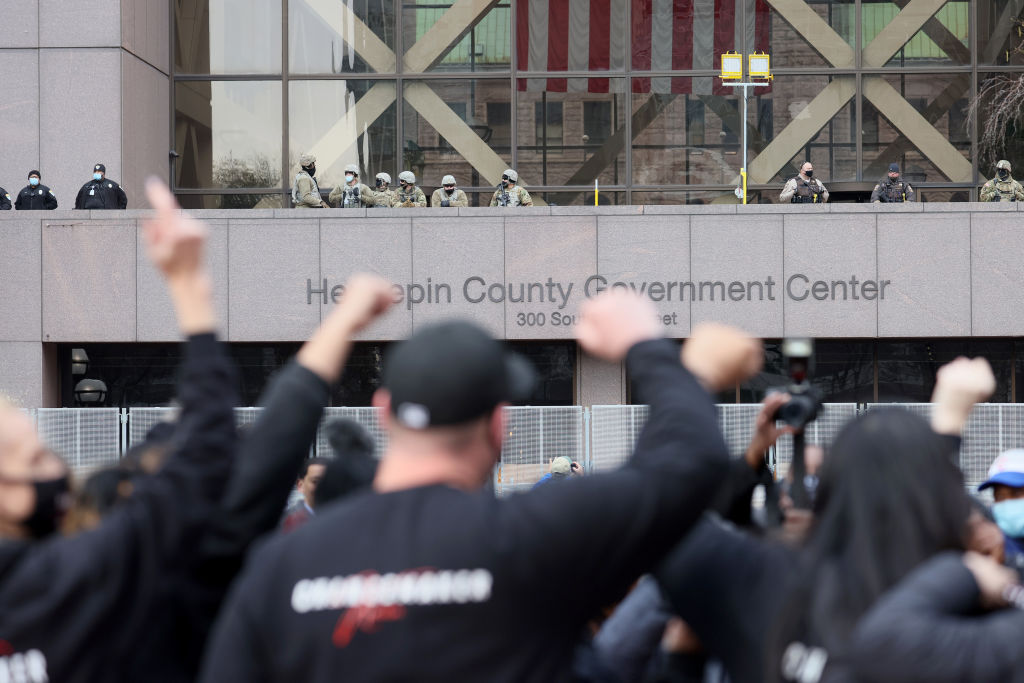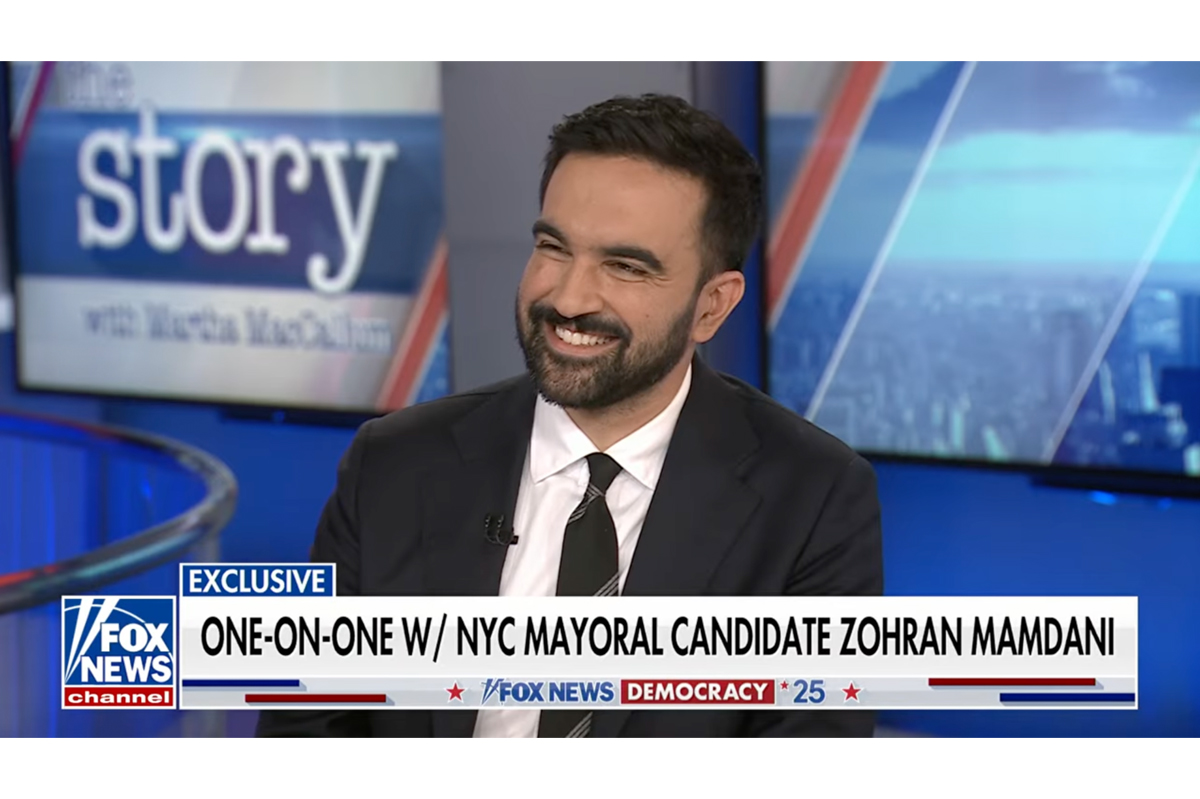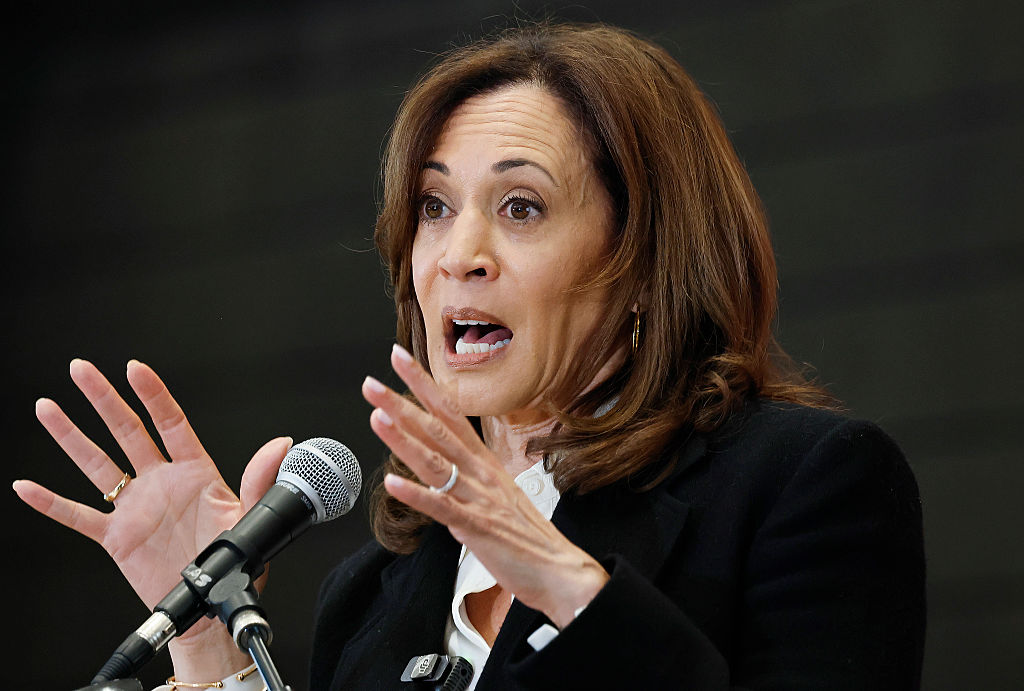The jury rendered guilty verdicts on all three charges against former Minneapolis police officer Derek Chauvin — second-degree murder, third-degree murder and second-degree manslaughter — after 10 hours of deliberations. He will be sentenced on the second-degree murder charge that was the most serious of the three.
The charges were brought in an atmosphere of mob justice on May 29 and June 3, 2020, within days of the death of George Floyd on May 25. Indeed, the charges were filed in response to the demands of the mob while the Twin Cities were burning down at its hands.
Chauvin was repeatedly declared guilty of murder by Minnesota governor Tim Walz, Minnesota attorney general and former Nation of Islam race hustler Keith Ellison and other local authorities in press conferences broadcast statewide in the immediate aftermath of Floyd’s death. Walz called another press conference for the mayors of Minneapolis and St Paul to do it again as the Chauvin jury retired to deliberate on April 19.
As if this were not enough, we were afforded the invaluable contribution of Mad Maxine Waters. The California congresswoman was airlifted into Brooklyn Center in response to the death of Daunte Wright to add to the mix. Mad Maxine demanded Chauvin’s conviction on first degree murder, a charge which the prosecutors had somehow failed to bring in the case.
The Chauvin trial took place in the Hennepin County Government Center in downtown Minneapolis. The 24-story courthouse building was ringed with bricks and razor wire in advance of the trial. Soldiers and law enforcement authorities have protected the building over the past six weeks. But for the trial the building was essentially closed for security reasons. The courthouse visibly manifested the mob atmosphere underlying the case.
Any reasonable observer might question whether Derek Chauvin could receive, or did receive, a fair trial in Hennepin County. I certainly do. In his order denying Chauvin’s motion for a change of venue, Judge Cahill acknowledged the problem of pretrial publicity but deemed it irremediable by a change of venue. If Judge Cahill had the temerity to change venue to Thief River Falls in Pennington County, for example, or Madison in Lac Qui Parle County, you wonder if he wouldn’t have set off another round of riots, or whether the thought was on his mind.
I watched the trial from jury selection through the verdicts today. Contrary to my predisposition to support law enforcement and my understanding of the case before trial, I thought the prosecution introduced a substantial case against Chauvin and that the defense case was thin and weak. Indeed, for example, the defense put in evidence that carbon monoxide poisoning from the squad car’s exhaust contributed to Floyd’s death and argued the point to the jury in closing. Who put Chauvin next to the squad’s exhaust pipe and held him there? Although the prosecution disputed the evidence of carbon monoxide poisoning during trial, I thought the evidence tended to support the prosecution’s case against Chauvin, as one of the prosecutors finally tumbled to during his rebuttal argument.
I was surprised by how far the case departed from my previous understanding of it. Floyd was high on a potentially lethal dose of fentanyl at the time of his death, but the issue of drug abuse seemed to recede in importance as a cause of Floyd’s death, even in the testimony of defense medical expert David Fowler.
Prominent attorneys contributed their services to Chauvin’s prosecution. The Office of the Minnesota Attorney General, which employs well over a hundred lawyers, was apparently insufficient to the task. Pro bono prosecutor Steve Schleicher massacred defense use of force expert Barry Brodd on cross examination. Fowler — a forensic pathologist, formerly chief Maryland medical examiner — ascribed Floyd’s death to a plethora of causes other than asphyxiation by Chauvin’s knee on Floyd’s neck, but his opinion failed to persuade the jury.
The prosecution also benefited from the contribution of the services of medical experts Martin Tobin, a pulmonologist, and Jonathan Rich, a cardiologist. They were impressive witnesses, but there is no aspect of the prosecution which was not subject to overkill — from the bystanders, the bystanders’ videos, the police bodycam videos, the Minneapolis Police Department witnesses, the use of force experts and the medical experts. Cumulative testimony was the order of the day. Chauvin himself exercised his Fifth Amendment right not to testify. The famous bystander video that made the case a cause called out for explanation. Nevertheless, nothing beyond speculation was offered.
Race was not an issue in the trial, yet the case has been claimed as an example of ‘systemic racism’ by the left from President Biden and Gov. Walz on down. The prosecution of Derek Chauvin became a cause for our racial hustlers and professional elites, but the cause is politics, not justice — and the politics are themselves of a suffocating and deadly variety.

























